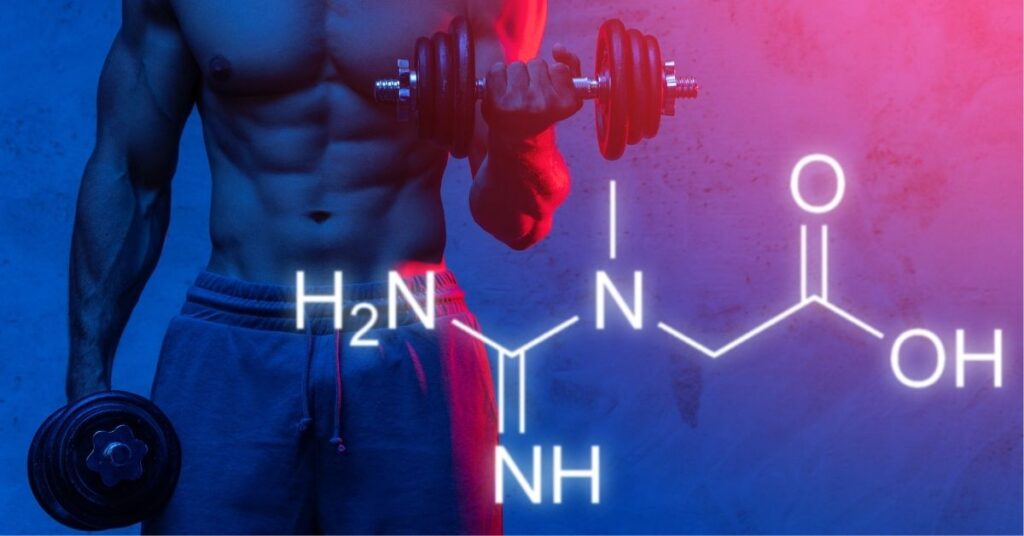It’s a molecule that the body makes from amino acids. Primary production occurs in the liver, with kidneys and pancreas following closely behind. To regenerate ATP, the body uses ADP to store high-energy phosphate groups in the form of phosphocreatine. Under conditions of high energy demand, such as intense physical or mental activity, this role in energy production is especially important.
In your body, muscle contraction is powered by creatine, which is a natural source of energy. Skeletal muscle stores 95 percent of your body’s creatine, which is then utilised during exercise. In working muscles, creatine helps to maintain a constant supply of energy. Your heart, brain, and other tissues also contain small amounts of the substance.
Creatine supplements are used for a variety of purposes
In the past, professional and amateur athletes of all levels have taken creatine supplements as a way to enhance their training regimens and improve their recovery afterward. In addition to improving performance, creatine also increases strength. However, it has little effect on aerobic endurance. As a rule, creatine supplement users tend to be male athletes who participate in power sports like football, wrestling or hockey.
Before taking creatine supplements, talk to your doctor or healthcare provider, regardless of your age or health condition.
Gain muscle strength
In studies, both younger and older adults were found to benefit from creatine supplementation. Age-related muscle loss or sarcopenia in older adults may be helped by creatine. When combined with muscle strengthening exercises, it is especially beneficial.
May help manage neurodegenerative disorders
Some studies suggest that supplementing with creatine may help people with neurodegenerative diseases, such as Parkinson’s disease and muscular dystrophies, manage their symptoms.
Muscle volumization is enhanced by Creatine
Another benefit of creatine for bodybuilders and strength athletes is its ability to increase muscle volume. A property of creatine is that it causes muscle cells to inflate, resulting in a more muscular appearance. It also stimulates protein synthesis.
The first few weeks after starting creatine supplementation can result in an increase of up to six pounds in body weight (a process primarily accounted for by water moving rapidly from the bloodstream to the muscle).
Improves the performance of high-intensity exercise
Exercise performance can be dramatically improved due to creatine’s direct role in ATP production. As a result, creatine improves a wide range of factors:
- strength
- strength and muscular endurance
- The ability to withstand fatigue
- mass of muscle
- recovery
- performance of the brain
Possibly beneficial for Parkinson’s disease
A key neurotransmitter in your brain, dopamine, is depleted in Parkinson’s disease.
Due to the large drop in dopamine levels, brain cells die, and tremors, muscle weakness, and speech impairments are among the serious symptoms.
Muscle growth is accelerated
Creatine is the world’s most effective supplement for building muscle mass, according to the World Health Organization. As little as 5–7 days of use has been shown to increase lean body weight and muscle size significantly. Your muscles’ water content increases, causing the initial rise. By signalling key biological pathways and enhancing gym performance, it also promotes muscle fibre growth over the long term.
Physical Endurance is improved by using this product
Creatine supplements increase energy production in muscle cells by using ATP’s biochemical mechanism as a power source. For the body to generate energy, it breaks down the ATP in the body. Vitality decreases as a high-intensity workout or athletic training advances. The consumption of creatine-rich beverages or supplements between strenuous workouts helps to replenish muscle cells, improve performance, increase stamina and prolong workouts.
Glucose metabolism is regulated
It’s a chronic disease, and its incidence is on the rise. They should not engage in high-intensity training but should take brisk walks, run, and do simple movement exercises to flex their body parts. This helps to regulate blood sugar levels and keep diabetes in check by improving glucose transport to muscle cells.
Improves heart health
Fortifying cardiac muscles and boosting lung power, particularly during high-intensity workouts are two of the many benefits of creatine. When taken in moderate amounts, creatine powders and supplements help to prevent pulmonary disorders and heart disease by maintaining the optimal strength of the heart and lungs.
Efficiently reduces depression
Even though regular physical activity has a positive effect on depression sufferers’ moods and cognitive abilities, adding creatine to their routine antidepressant medications enhances mental wellbeing. Besides reducing depression and anxiety, creatine promotes neurotransmitter production and activity in the brain and other central nervous system cells and tissues.
Promotes weight gain at the optimal rate
Because of its multiple roles in body cells, creatine helps to increase body mass while maintaining normal fat distribution. Hepatitis C virus (HCV) is a virus that attacks and destroys cells and tissues. Creatine increases muscle mass and size by increasing the water content of cells and influencing hormonal activity, while also strengthening core connective tissues.
Is creatine safe?
In reality, creatine poses few dangers. Inadvertently, performance-enhancing drugs have been equated with the worst examples because of their bad reputation. As a result, the body’s creatinine levels rise, which is a sign of poor kidney health. But the increase in creatinine is not due to kidney damage; it’s simply a result of the body producing more creatinine than it normally would. Although studies on people with reduced kidney function have not been conducted over a long period of time, caution should still be exercised in that situation. Unless excessive creatine causes minor gastrointestinal problems, it is unlikely to be harmful or unsafe for you.
Side effects
Supplements containing creatine powder and supplements are generally considered safe and easily absorbed by the digestive system in most normal, healthy adults when taken in measured amounts. However, when high doses of creatine are consumed frequently, it can lead to kidney, liver, and heart malfunctions, as well as stomach aches, diarrhoea, nausea, and vomiting. As a result, creatine powder is strictly forbidden for people with pre-existing kidney problems.

